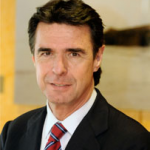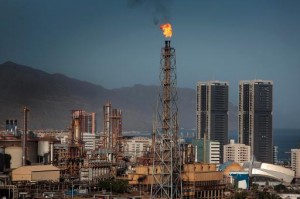The pro-business, spanish government has finally granted Repsol, the country’s largest oil company, permission to drill three exploratory wells of the coast of the Canary islands near Marrocco’s territorial waters despite vigorous opposition, discussed here a few weeks ago, from the regional government in the islands and most of civil society.

The Spanish Minister for Industry, Energy and Turism, José Manuel Soria López, who is actually from the canary Islands, insists that the field has the potential to satisfy 10% of Spain’s energy requirements, other companies are drilling on the Moroccan side of the border anyway, and the risks of an environmental disaster are small.
For the Canary Islands which much of its economy from the tourist industry any risk is to great.
On this issue of risk, there is a fundamental difference between business people and those who are concerned about the environment. For business people risk and reward are at the heart of every business decision and Managers are trained at schools such IESE to deal with both the quantifiable and qualitative aspects of risk on a regular basis.
The oil industry, for example has a number of processes in place to manage offshore drilling and takes great care to minimize the possibility of accidents. From a business viewpoint, the issue is how to manage risks in a cost effective way and there is an entire service industry devoted to developing acceptable standards for a wide variety of processes and installations and ensuring that those standards are met.
As for environmentalists, no amount of analysis or contingency planning can be acceptable for risks they feel should not be taken.

Columbia University’s Graciela Chichilnisky, a mathematical economist and expert on climate change, argues that classic decision analysis, which is based on expected outcomes and decision trees, etc., simply does not work when dealing with “rare events with major consequences”.
One reason that such calculations do not work well is that the probabilities of such events are so low, that no matter how grave the consequences, the expected cost will be low enough to ignore. Chichilnisky concludes that new axioms are needed to raise awareness of Catastrophic Risks and bring them into sharper consideration.
 In his landmark book, How To Think Seriously About The Planet, Philosopher Roger Scruton rallies against government officials and activists who believe that certain risks are simply unacceptable and thus should be removed from the realm of possibility.
In his landmark book, How To Think Seriously About The Planet, Philosopher Roger Scruton rallies against government officials and activists who believe that certain risks are simply unacceptable and thus should be removed from the realm of possibility.
Scruton takes particular exception to what is known as the precautionary principal which essentially states that if there is a possibility that a practice or compound can cause catastrophic harm, then its use should be halted until we can be sure that it is safe.
At the Rio summit in 1992, the idea was formulated as follows: “ … Where there are threats of serious or irreversible damage, lack of full scientific certainty shall not be used as a reason for postponing cost-effective measures to prevent environmental degradation.”
Scruton, however, also believes strongly in letting local community groups and local politicians decide whats right for them and the place they call home.

In my view, the problem is not so much the exploratory wells Repsol is currently drilling, but the choice of production rigs and the development of oil field infrastructure in the islands which will happen if the field proves as good as the seismic surveys indicate. Repsol’s rival Cepsa already operates an oil refinery close to the center of Tenerife and perhaps that is enough heavy industry for an island paradise.
As parts of Spain clamour for more autonomy and even independence, it seems counterproductive for the central government to make such a decision regardless of their attitude towards risk and supporting business.

